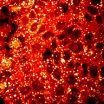(Press-News.org) A chemical found in plants could reduce the symptoms of a rare muscle disease that leaves children with little or no control of their movements.
Scientists have found that a plant pigment called quercetin – found in some fruits, vegetables, herbs and grains – could help to prevent the damage to nerves associated with the childhood form of motor neuron disease.
Their findings could pave the way for new treatments for spinal muscular atrophy (SMA) – also known as floppy baby syndrome – which is a leading genetic cause of death in children.
The team has found that the build-up of a specific molecule inside cells – called beta-catenin – is responsible for some of the symptoms associated with the condition.
In tests on zebrafish, flies and mice, scientists found that treating the disease with purified quercetin – which targets beta-catenin – led to a significant improvement in the health of nerve and muscle cells.
Quercetin did not prevent all of the symptoms associated with the disorder but researchers hope that it could offer a useful treatment option in the early stages of disease.
They now hope to create better versions of the chemical that are more effective than naturally-occurring quercetin.
SMA is caused by a mutation in a gene that is vital for the survival of nerve cells that connect the brain and spinal cord to the muscles, known as motor neurons. Until now, it was not known how the mutation damages these cells and causes disease.
The study reveals that the mutated gene affects a key housekeeping process that is required for removing unwanted molecules from cells in the body. When this process doesn't work properly, molecules can build-up and cause problems inside the cells.
Children with SMA experience progressive muscle wastage and loss of mobility and control of their movements. The disorder is often referred to as 'floppy baby syndrome' because of the weakness that it creates.
It affects one in 6000 babies and around half of children with the most severe form will die before the age of two.
The study is published today in the Journal of Clinical Investigation.
Professor Tom Gillingwater from the University of Edinburgh, who led the study, said: "This is an important step that could one day improve quality of life for the babies affected by this condition and their families. There is currently no cure for this kind of neuromuscular disorder so new treatments that can tackle the progression of disease are urgently needed."
INFORMATION: END
Plant extract offers hope for infant motor neuron therapy
2014-03-05
ELSE PRESS RELEASES FROM THIS DATE:
Study comparing injectable contraceptives DMPA and NET-EN finds HIV risk higher with DMPA
2014-03-04
BOSTON, March 4, 2014 – Women who used an injectable contraceptive called DMPA were more likely to acquire HIV than women using a similar product called NET-EN, according to a secondary analysis of data from a large HIV prevention trial called VOICE, researchers from the National Institutes of Health-funded Microbicide Trials Network (MTN) reported today at the 21st Conference on Retroviruses and Opportunistic Infections (CROI) in Boston.
An unexpected finding in the study was that the combination of being positive for herpes simplex virus type 2 (HSV-2) and using DMPA ...
Raising an army of armchair activists?
2014-03-04
Social media may fuel unprecedented civic engagement. Digital networks might make possible mass protest and revolution – think "Arab Spring." But sometimes and maybe even most of the time, a new study suggests, the accomplishments of online activism are much more modest.
Published in Sociological Science, the paper was co-authored by Kevin Lewis, of the University of California, San Diego's department of sociology, with Kurt Gray, department of psychology at the University of North Carolina, Chapel Hill, and Jens Meierhenrich, department of international relations, London ...
Satellite video captures the eastern US winter storm track
2014-03-04
VIDEO:
This animation of NOAA's GOES satellite data shows the progression of the major winter storm over the US Mid-Atlantic and southern states on Mar. 2 and 3.
Click here for more information.
As NOAA's GOES-East satellite sat in a fixed orbit in space it monitored and provided visible and infrared imagery of the major winter storm that hit the U.S. east coast on March 2 and 3. Now, that data has been compiled and made into a video at NASA.
On March 2 and 3, a major winter ...
Investigational drug may increase survival for some patients with advanced melanoma
2014-03-04
An experimental drug aimed at restoring the immune system's ability to spot and attack cancer halted cancer progression or shrank tumors in patients with advanced melanoma, according to a multisite, early-phase clinical trial at Johns Hopkins Kimmel Cancer Center and 11 other institutions. All patients had experienced disease progression despite prior systemic therapies, and most had received two or more prior treatments.
Patients who showed responses to the drug, nivolumab (anti-PD-1; BMS-936558; MDX-1106; ONO-4538), survived for an average 16.8 months following initiation ...
Imprint of chemotherapy linked to inflammation in breast cancer survivors
2014-03-04
Many breast cancer survivors experience fatigue and other debilitating symptoms that persist months to years after their course of treatment has ended.
Now researchers at the Winship Cancer Institute of Emory University have found clues that may explain how these symptoms can linger. Chemotherapy, one of the major treatments for breast cancer, can leave a long-lasting epigenetic imprint in the DNA of breast cancer patients' blood cells. That imprint is associated with biological signs of inflammation up to six months after the completion of treatment. Inflammation in ...
Common cancers evade detection by silencing parts of immune system cells
2014-03-04
Johns Hopkins researchers say they have identified a set of genes that appear to predict which tumors can evade detection by the body's immune system, a step that may enable them to eventually target only the patients most likely to respond best to a new class of treatment.
Immune therapy for ovarian, breast and colorectal cancer — treatments that encourage the immune system to attack cancer cells as the foreign invaders they are — has so far had limited success, primarily because the immune system often can't destroy the cancer cells. In a report published online Feb. ...
'Dimer molecules' aid study of exoplanet pressure, hunt for life
2014-03-04
Astronomers at the University of Washington have developed a new method of gauging the atmospheric pressure of exoplanets, or worlds beyond the solar system, by looking for a certain type of molecule.
And if there is life out in space, scientists may one day use this same technique to detect its biosignature — the telltale chemical signs of its presence — in the atmosphere of an alien world.
Understanding atmospheric pressure is key to knowing if conditions at the surface of a terrestrial, or rocky, exoplanet might allow liquid water, thus giving life a chance.
The ...
Cholesterol study suggests new diagnostic, treatment approach for prostate cancer
2014-03-04
WEST LAFAYETTE, Ind. - Researchers have discovered a link between prostate cancer aggressiveness and the accumulation of a compound produced when cholesterol is metabolized in cells, findings that could bring new diagnostic and treatment methods.
Findings also suggest that a class of drugs previously developed to treat atherosclerosis might be repurposed for treatment of advanced prostate cancer.
The research showed depletion of the compound cholesteryl ester significantly reduced prostate cancer cell proliferation, impaired its ability to invade a laboratory tissue ...
Young children form first impressions from faces
2014-03-04
Just like adults, children as young as 3 tend to judge an individual's character traits, such as trustworthiness and competence, simply by looking at the person's face, new research shows. And they show remarkable consensus in the judgments they make, the findings suggest.
The research, led by psychological scientist Emily Cogsdill of Harvard University, shows that the predisposition to judge others based on physical features starts early in childhood and does not require years of social experience. The study is published in Psychological Science, a journal of the Association ...
Research connects drug war violence in Mexico with desensitization in social media
2014-03-04
Amid times of crisis, citizens often turn to social media as a method to share information, make observations and vent. But as a Georgia Tech professor's research into social media use amid the Mexican drug war shows, posts can reveal growing numbness, or desensitization, during times of protracted violence and stress.
Munmun De Choudhury, formerly of Microsoft Research and now an assistant professor in the School of Interactive Computing at Georgia Tech, led the research. Her team's paper, "'Narco' Emotions: Affect and Desensitization in Social Media during the Mexican ...


